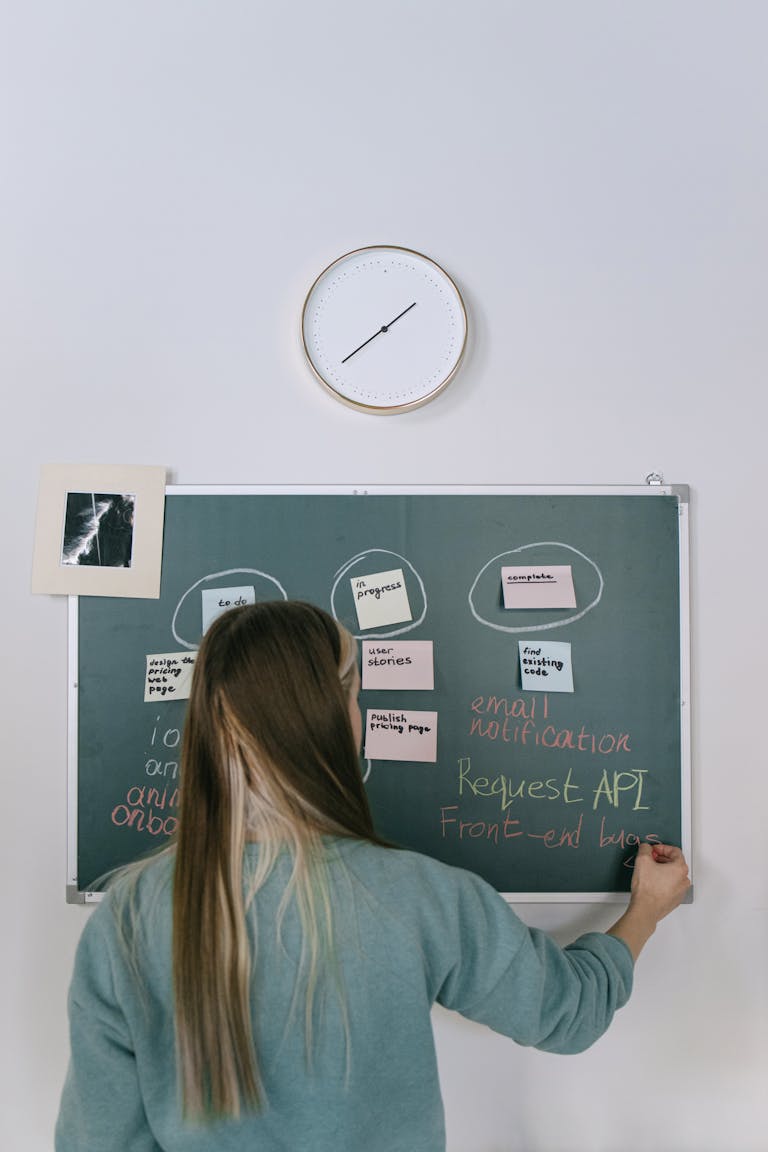In the digital age, social media is ubiquitous. It’s woven into the fabric of our daily lives, offering a platform for communication, entertainment, and networking. However, as its popularity continues to rise, so do concerns about its impact on mental health and productivity. While social media has its advantages, excessive use can negatively affect both mental well-being and work performance. In this article, we’ll explore the impact of social media on mental health and productivity, as well as strategies to mitigate these effects.

1. The Influence of Social Media on Mental Health
Social media platforms like Facebook, Instagram, Twitter, and TikTok provide endless streams of information and interaction. While these platforms can help people stay connected and entertained, they also come with significant risks to mental health.
1.1 Social Comparison and Low Self-Esteem
One of the most common negative effects of social media is the tendency for users to compare themselves to others. People often present curated, idealized versions of their lives, which can create unrealistic expectations and feelings of inadequacy in viewers. This “highlight reel” phenomenon can negatively impact self-esteem, especially when users constantly measure their own lives against the filtered, polished images of others.
1.2 Anxiety and Stress from Over-Connectivity
Constant notifications, updates, and messages can create a sense of urgency and pressure. The need to stay connected and respond quickly can lead to stress and anxiety. In addition, the overwhelming flood of information can contribute to mental fatigue, making it difficult to focus and relax.
2. Social Media’s Effect on Productivity
While social media can be an effective tool for communication and marketing, excessive use during work hours can lead to significant productivity losses. The addictive nature of social media platforms makes it difficult to concentrate on work for extended periods, leading to procrastination and reduced efficiency.
2.1 Distractions and Time Wasting
The average person spends hours each day scrolling through social media feeds, often at the expense of more productive activities. Whether it’s checking Facebook notifications, browsing Instagram stories, or engaging in debates on Twitter, these distractions can add up, leading to lost hours that could otherwise be spent on important tasks.
2.2 Reduced Cognitive Functioning
Studies have shown that frequent social media use can reduce cognitive performance. Constantly switching between tasks, such as checking social media while working on a project, can decrease focus and hinder the brain’s ability to retain information. This phenomenon, known as task-switching, can impair problem-solving skills and decision-making abilities.
3. Strategies to Minimize Social Media’s Negative Impact
While social media can have a significant impact on mental health and productivity, there are ways to minimize its negative effects. Here are some practical strategies for maintaining a healthier relationship with social media.
3.1 Set Time Limits for Social Media Use
One of the easiest ways to manage social media consumption is to set daily time limits for each platform. Both iOS and Android devices allow users to monitor and limit screen time. For instance, you can limit your daily use of social media apps to 30 minutes or one hour. Once you reach your time limit, you’ll receive a notification to remind you to stop.
3.2 Designate Social Media-Free Times
Create specific periods throughout the day where you avoid using social media. For example, you can designate the first hour after waking up and the last hour before bed as social media-free zones. Use this time to engage in offline activities like meditation, reading, or exercise—activities that promote mental well-being and productivity.
3.3 Curate Your Social Media Feeds
Another way to reduce social media’s negative impact is to curate your feeds. Follow accounts that promote positivity, motivation, and productivity. Avoid following profiles that consistently post negative or unrealistic content. By surrounding yourself with positive influences, you can reduce the chances of social comparison and feelings of inadequacy.
4. The Benefits of a Social Media Detox
Taking a break from social media can have significant mental and emotional benefits. A social media detox involves disconnecting from all social platforms for a set period of time, ranging from a few hours to several weeks.
4.1 Improved Focus and Productivity
When you step away from the constant distractions of social media, your focus improves. A detox allows you to regain control over your time and direct your energy toward more productive endeavors. Whether it’s working on personal projects, completing work tasks, or simply enjoying hobbies, a social media break can lead to better time management.
4.2 Enhanced Mental Health
Disconnecting from social media can help reduce feelings of anxiety, stress, and social comparison. It gives you the opportunity to reset and focus on activities that nurture your mental health, such as spending time with loved ones, practicing mindfulness, or engaging in physical exercise.
5. Creating a Balanced Social Media Routine
Rather than completely abandoning social media, it’s important to establish a balanced routine that prioritizes well-being and productivity. Here are a few tips for maintaining a healthy relationship with social media:
5.1 Limit Passive Scrolling
Instead of endlessly scrolling through feeds, engage with content purposefully. For example, set specific goals for your social media usage, such as reading articles, connecting with friends, or learning something new. Be intentional about how you use your time online.
5.2 Prioritize Real-Life Connections
While social media can help you stay in touch with friends and family, it’s essential to prioritize real-life connections. Make time for face-to-face interactions, phone calls, or video chats to build deeper relationships that aren’t dependent on social media.
Q: How do I know if I’m using social media too much?
A: If you find yourself spending hours each day on social media, feeling anxious or stressed after using it, or experiencing difficulty focusing on work, it may be a sign that you’re using it excessively. Setting time limits and taking regular breaks can help reduce overuse.
Q: What are some alternative activities to replace social media use?
A: Consider replacing social media with activities that promote well-being, such as exercising, reading, journaling, or spending time in nature. These activities can improve mental health and productivity without the negative effects of excessive screen time.
Take Control of Your Social Media Use Today
Start creating a healthier digital balance by setting time limits, curating your feeds, and engaging in activities that enhance your well-being. If social media is affecting your mental health or productivity, consider taking a short break and focus on activities that nourish your mind and body.

I’m EKBAL HOSSAIN MONDAL, the creator of SmartSolveTips.com — a blog dedicated to helping people improve productivity, avoid digital burnout, and live better online. With years of hands-on experience in self-development and digital wellness, I write practical tips and tools to help you stay focused and thrive in a fast-paced digital world.






